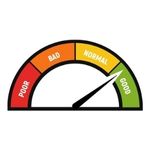
Investment Loan
- Multiple loan offers
- Get approved today
- Free application – no commitment
Compare top lenders
Together with our partners, we provide access to up to 19 reputable banks and lenders. Explore offers tailored to your needs and choose the most suitable offer. Each lender abides by the regulations outlined by the South African National Credit Regulator (NCR).
Disclaimer: Responsible Borrowing Advice
Taking out a loan to invest carries significant financial risks, especially if you are not experienced in investment strategies or fully understand the potential outcomes. At Arcadia Finance, we do not actively promote borrowing for investment purposes unless you have thoroughly researched, planned, and are confident in your financial decision-making. Always consult a financial advisor before committing to such a loan.
What Is an Investment Loan?
An investment loan is a financial product designed to enable businesses to secure funding for acquiring long-term assets that are essential for their growth and operations. These assets may include physical items such as machinery, equipment, and vehicles, as well as immovable property like land and buildings. Additionally, investment loans can be utilised for obtaining intangible assets, such as patents, trademarks, or licences.
The scope of investment projects often extends to initiatives such as modernising existing infrastructure, funding research and development activities, or constructing additional production facilities to expand capacity. As a result, investment loans play a crucial role in the broader framework of corporate financing, providing businesses with the necessary resources to pursue sustainable growth and achieve their strategic objectives.
Conditions and Interest Rates
When applying for investment loans, banks often require the borrower to provide equity to reduce the bank’s risk exposure. Securing full financing without equity is uncommon. Depending on the type of asset being financed, applicants may need to submit various supporting documents, such as purchase agreements, financial plans, and cash flow projections. Interest rates for investment loans can differ significantly between financial institutions, making it essential to carefully select the appropriate lender.
Investment loans typically come with either fixed or variable interest rates:
- Variable Interest Rate: The interest rate fluctuates based on market conditions. While this can present opportunities for lower costs during favourable market periods, it also exposes the borrower to the risk of increased costs if interest rates rise during the loan term.
- Fixed Interest Rate: The interest rate remains unchanged throughout the loan term. This offers the borrower greater financial predictability, allowing for more accurate planning.
Receive loan offers immediately after filling out the loan application. Check what kind of loan offers you will get!
What Collateral Is Needed for an Investment Loan?
Investment loans typically require sufficient collateral to secure the borrowing. In many cases, the collateral can be the investment property itself, provided the lender assesses it as having adequate value. Additionally, other assets such as real estate or land may be needed as collateral. Some lenders may also accept guarantees from third parties to fulfil this requirement. The interest rate on an investment loan is influenced by several factors, including the company’s creditworthiness, the industry in which it operates, and the type and value of the collateral provided.
Comparison of South African Banks for Investment Loans
| Bank | Loan Type | Interest Rates (Indicative) | Maximum Loan Term | Collateral Required | Application Features |
|---|---|---|---|---|---|
| ABSA | Business Investment Loan | Prime + 1-4% | Up to 10 years | Yes (property, assets, or guarantees) | Online and in-branch applications, quick approval process |
| Standard Bank | Investment Finance | Prime + 2-5% | Up to 7 years | Yes (based on loan type) | Customised packages for businesses, flexible repayment options |
| Nedbank | Business Growth Loan | Prime + 1.5-3% | Up to 10 years | Yes (movable or immovable assets) | Tailored options for SMEs, requires detailed business plans |
| First National Bank (FNB) | Business Fixed Loan | Prime + 1-3% | Up to 5 years | Yes (fixed assets) | Streamlined process for existing customers, cash flow assessments |
| Capitec | Unsecured Business Credit | Higher, depends on risk profile | Flexible (shorter terms) | No (higher interest rates apply) | Simple application, limited to small business needs |
No hidden fees, free application – no commitment
Types of Investment Loans
Investment loans are tailored to meet diverse business needs, enabling organisations to fund specific investments critical to their growth and operational objectives. The following are common categories of investment loans:
Equipment Financing
This type of loan is designed to help businesses acquire machinery, tools, or vehicles essential for their operations. Equipment financing allows companies to increase efficiency, improve production capacity, and stay competitive without requiring upfront capital outlay.
Property Acquisition Loans
These loans assist businesses in purchasing immovable assets such as land or buildings. Property acquisition loans are ideal for companies looking to expand their physical footprint, establish new offices, or develop production facilities.
Loans for Intangible Assets
In some cases, businesses need funding for non-physical assets such as patents, trademarks, or software licences. Investment loans for intangible assets help companies protect intellectual property, secure operational licences, or acquire technology critical to their operations.
Eligibility Criteria
Businesses must meet specific requirements to qualify for an investment loan. Lenders typically evaluate the following factors to assess the applicant’s suitability:

Creditworthiness
The credit history and overall financial standing of the business play a crucial role in the approval process. A strong credit score, along with a proven track record of repaying previous debts on time, demonstrates the applicant’s financial responsibility. A favourable credit profile not only improves the chances of loan approval but may also allow the business to negotiate better interest rates and loan terms.

Business Performance
Lenders assess the operational and financial health of the business in detail. This includes reviewing profitability levels, cash flow stability, and the company’s potential for growth. Consistent financial performance reassures lenders that the business has the capacity to manage loan repayments without undue financial strain. Companies with a solid history of generating reliable income streams are more likely to secure funding.

Documentation
Comprehensive and accurate documentation is essential to support the loan application. Businesses are typically required to submit:
- Financial Statements: Detailed income statements, balance sheets, and cash flow reports from the past two to three years, offering insights into the financial health of the company.
- Business Plan: A clearly outlined plan explaining the loan’s purpose, how the funds will be utilised, and the anticipated benefits for the business. This helps the lender understand the strategic intent behind the loan.
- Cash Flow Projections: Forward-looking estimates showing the company’s ability to meet repayment obligations over the loan term.
- Purchase Agreements or Quotations: Documentation related to the assets being financed, such as agreements or cost estimates, ensuring transparency and accountability in how the loan will be used.
Check your eligibility for FREE!
Who Can Apply for a Loan?
- You are over 18 years old
- You are employed and employment has lasted for more than 6 months
- Your loan should not be more than 8 times larger than your monthly income
Compare Loans in 3 Easy Steps

Fill in our application
Complete our loan application in minutes. Just enter your details and choose your desired loan amount.

Choose a loan offer
Based on your responses, you will receive a variety of personalised offers from up to 19 lenders.

Get your money
You are free to accept or decline the offers as you please. The offers are non-binding.
Application Process for an Investment Loan
Applying for an investment loan requires careful preparation and attention to detail. Below are the typical steps involved in the process:
- Preparing Financial Statements
Compile up-to-date and accurate financial statements, including income statements, balance sheets, and cash flow reports. These documents help lenders assess the financial viability of the business.
- Developing a Business Plan
Create a comprehensive business plan that clearly explains the purpose of the loan, how the funds will be used, and the expected outcomes. A well-drafted plan strengthens the application by demonstrating that the investment aligns with the business’s strategic goals.
- Researching and Selecting a Lender
Evaluate potential lenders based on their terms, interest rates, and expertise in financing businesses within your industry. Comparing multiple options helps identify a lender that best suits your needs.
- Submitting the Application
Once all documentation is in order, submit the loan application along with any additional forms or information requested by the lender. Be prepared to answer follow-up questions or provide clarifications during the review process.
- Awaiting Approval and Finalising Terms
After the lender reviews the application, they may issue an approval, often accompanied by specific terms and conditions. Carefully review these terms before accepting the loan to ensure they align with your business’s financial capabilities and goals.
Why Use Arcadia Finance?
- 100% free: The application is free and does not include any hidden fees.
- Quick & easy: The whole application process is done online in minutes.
- Convenient: Compare up to 16 banks & lenders with one application.
- Non-binding: You decide if you want to accept or decline your offers.
- Safe: Your personal data is safe with us.
What is Arcadia Finance?
Arcadia Finance helps South Africans in the search for loans from different banks and lenders through our loan broker partners. We provide access to up to 19 reputable banks and lenders. By completing our loan application you will get multiple loan offers, which you can compare and select the most suitable offer. The service we offer is completely free of charge and you will not commit to anything by requesting for loan offers via Arcadia Finance. We only work with trusted loan brokers who collaborate with NCR licensed banks and lenders in South Africa.

Pros and Cons of Investment Loans
Pros
- Facilitates Business Expansion: Investment loans provide the necessary funding to grow operations, acquire assets, or enter new markets.
- Supports Innovation: Businesses can use these loans to invest in research, development, and advanced technologies, driving innovation and competitive advantage.
- Access to Long-Term Funding: Investment loans enable businesses to undertake large-scale projects that would be difficult to finance through internal resources alone.
- Preserves Cash Flow: By spreading the cost of major investments over time, businesses can manage their cash flow more effectively while pursuing growth objectives.
Cons
- Exposure to Interest Rate Fluctuations: Variable interest rates can result in higher repayment costs if market rates increase during the loan term.
- Repayment Challenges: Businesses may face difficulties meeting repayment schedules, especially during periods of low revenue or unexpected financial strain.
19
Banks & Brokers
Comparing
85%
South Africans
Approved for Loans
1 500 000
Users Compared Loans Through Arcadia
Alternatives to Investment Loans
Equity Financing
Equity financing involves raising capital by selling shares of the business to investors. This option is suitable for businesses that may not qualify for traditional loans or wish to avoid taking on debt. However, it requires giving up a portion of ownership and sharing future profits with investors.
Leasing
Instead of purchasing equipment or machinery outright, businesses can lease these assets. Leasing reduces the need for upfront capital and often includes maintenance services, though it may result in higher long-term costs compared to ownership.
Asset-Backed Finance
This option allows businesses to secure funding by leveraging existing assets, such as accounts receivable, inventory, or equipment. Asset-backed finance can provide quick access to capital, but it depends on the value and liquidity of the pledged assets.
Grants and Subsidies
In certain industries, businesses may qualify for government grants or subsidies. These programmes provide funding without the need for repayment, but they often come with strict eligibility criteria and application processes.
Venture Capital or Angel Investment
Start-ups and high-growth companies can seek funding from venture capitalists or angel investors. These investors provide capital in exchange for equity, mentorship, and strategic advice, though this option typically suits businesses with strong growth potential and scalable business models.
Revenue-Based Financing
In this model, businesses repay the loan as a percentage of their revenue, which provides flexibility during periods of fluctuating income. This option is particularly beneficial for companies with seasonal revenue streams.
Secure your loan effortlessly with Arcadia Finance
The loan application is free, and you can pick from a variety of 19 respected lenders. We only work with trusted loan brokers who collaborate with NCR licensed banks and lenders in South Africa.
After submitting your loan application to us, we will send it through our loan broker partners to a number of different banks and lenders for review. Within minutes, you’ll receive a variety of loan options that are available for you. Select the one that best fits your needs.
Remember, all offers are no-binding, so if you don’t find what you’re looking for, you’re free to decline.
Conclusion
Investment loans are a valuable tool for businesses seeking to fund large-scale projects, acquire critical assets, or expand their operations. By understanding the types of loans available, the eligibility criteria, and the application process, businesses can make informed decisions to secure the funding that best aligns with their goals. Additionally, comparing lenders and exploring alternative financing options ensures that businesses choose the most suitable and cost-effective method for their needs. Careful planning and thorough research are essential to maximise the benefits of investment loans and achieve sustainable growth.
Frequently Asked Questions
An investment loan is designed to provide funding for businesses to acquire assets, develop infrastructure, or invest in projects that contribute to long-term growth and profitability.
Collateral requirements vary by lender but commonly include the investment property itself, real estate, movable assets like machinery, or guarantees from third parties.
Fixed interest rates remain constant throughout the loan term, providing financial predictability. Variable interest rates fluctuate with market conditions, offering potential cost savings but with the risk of increased costs if rates rise.
Yes, small businesses can qualify for investment loans if they meet the lender’s requirements, including creditworthiness, financial stability, and the ability to provide necessary documentation.
Businesses that do not qualify for an investment loan can consider options like equity financing, leasing, asset-backed finance, government grants, or venture capital to secure funding.



